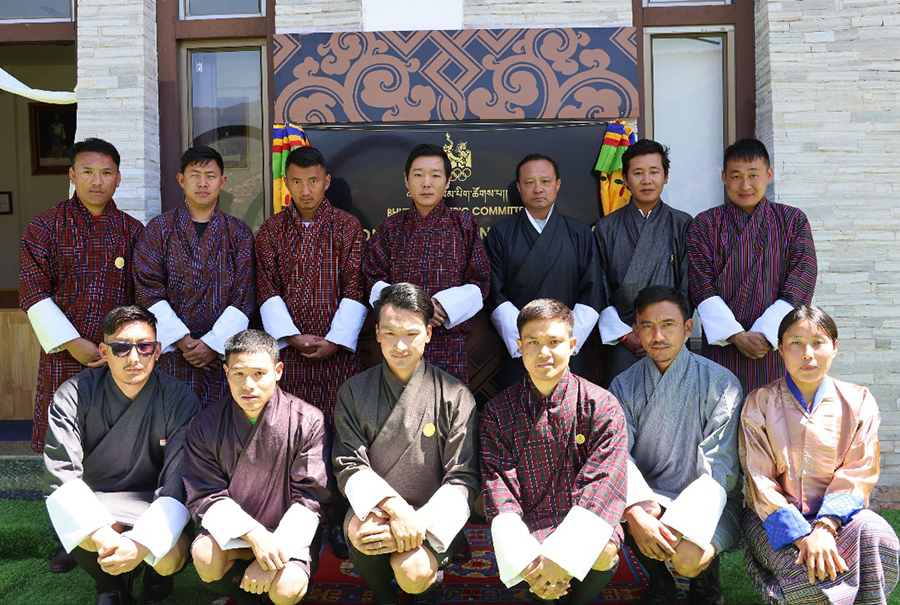 If you are a sports coach or aspire to become one, look no further than the newly inaugurated National Coaching Academy in Thimphu to build your skills. His Royal Highness Prince Jigyel Ugyen Wangchuck opened the facility today at the Bhutan Olympic Committee (BOC) campus.
If you are a sports coach or aspire to become one, look no further than the newly inaugurated National Coaching Academy in Thimphu to build your skills. His Royal Highness Prince Jigyel Ugyen Wangchuck opened the facility today at the Bhutan Olympic Committee (BOC) campus.
The National Coaching Academy will be used as a training and development centre for foundational coaching and athletic training. Though the academy was officially launched today, it has been functioning since last year. It has already hosted the first cohort of coaches from various sports federations for the Foundational Sport Science Certificate Programme. Fifteen coaches took part in the twenty-five-day course designed by the Bhutan Olympic Committee.
“For the players to perform well, be it in the Asian Games, the Olympics or the South Asian Games, they need to train well. For this, coaches need to be capable. Therefore, we need to build their capacity,” said Sonam Karma Tshering, Secretary General of the Bhutan Olympic Committee.
The second cohort for the same course will commence their class on Friday.
A two-day Coaches Development Course will also be given by experts from Japan’s Nippon Sports Science University for the coaches of Bhutan’s national sports federations from tomorrow.
BOC said the academy takes a holistic approach to learning, combining theoretical knowledge with practical experience.
“Before this academy, there were lots of challenges. We didn’t have the right resources and the right person to guide us. Now, with this academy, there is an expert tutor who will be teaching us the holistic approach to developing an athlete. So, this is a very good platform for all of us,” said Norbu Dradhul, Trainee at the Bhutan Badminton Federation.
“Even after being in this career for nine months, I am still learning. Some coaches are shy and some are reluctant to come forward. I urge them not to be like that because coming forward and training not only benefits ourselves but also those we train,” said Yeshi Dema, Trainee at the Bhutan Archery Federation.
Participants from national sports federations are required to pay Nu 2,000 as fees for the Foundational Sport Science Certificate Programme.
Starting this year, this course is also open to the general public passionate about pursuing a career in sports coaching. Individuals will have to pay Nu 5,000 for the course.
This inclusive approach aims to broaden opportunities for aspiring coaches and elevate the standard of sports education in Bhutan.
The programme has two modules: Introduction to Sport Science and Development, and Sports Management and Administration. It provides both theory and practical lessons to equip participants with sports science skills and knowledge. A senior coach from the Bhutan Football Federation and an expert from BOC provide the classes.
The facility is funded by the Olympic Solidarity, the International Olympic Committee’s global development arm. With Bhutan’s growing emphasis on athletic excellence and well-being, the initiative aims to provide essential knowledge and practical skills for those looking to build a career in sports, exercise, and health.
Kelzang Chhophyel
Edited by Kipchu









